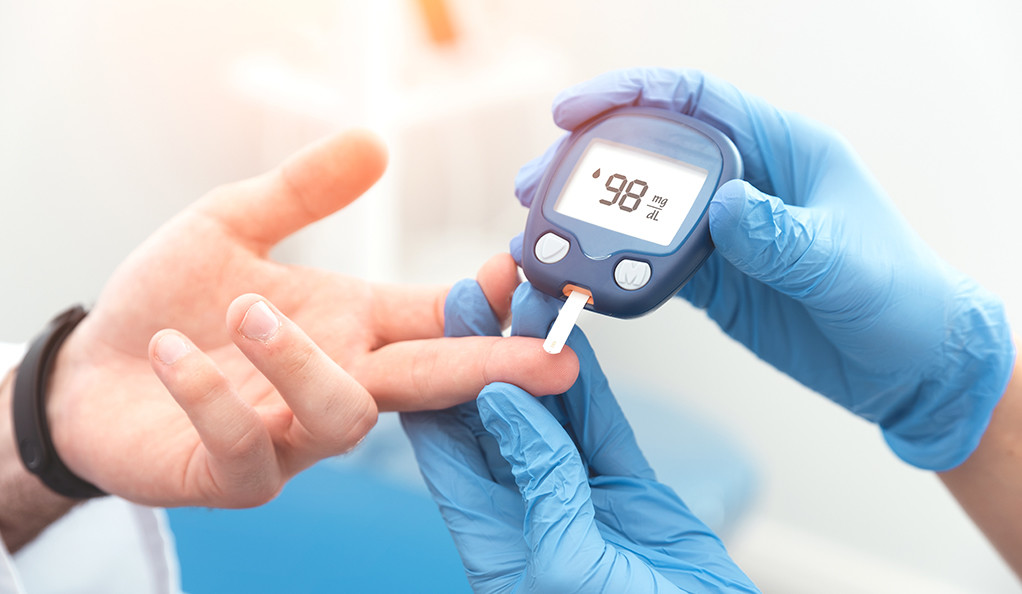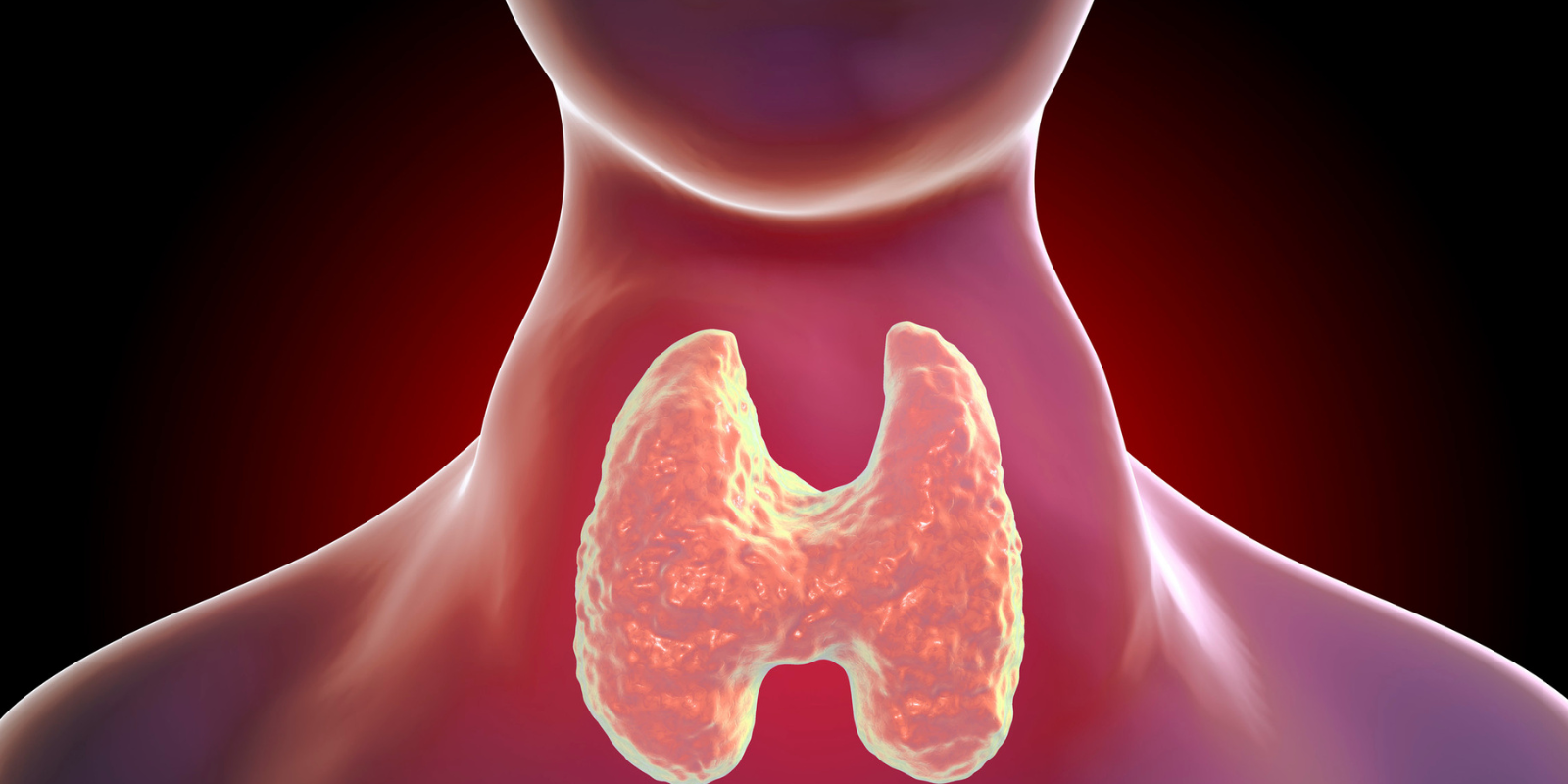Manage Blood Glucose Levels Naturally
Having a normal blood glucose level is crucial for improving your energy and mood. It also reduces your risk for other health complications and chronic diseases.

Just within America in 2017, more than 100 million people were suffering from diabetes or prediabetes which means having blood glucose levels more than normal but not high enough to be diagnosed as diabetes.
A fasting blood sugar level of less than 100mg/dl is considered normal whereas having a reading in between 100-125mg/dl is considered prediabetes and above that indicates diabetes.

Estimates have given an alarming projection of 471 million diabetic patients by the year 2035.
You need to manage your blood glucose levels to stay healthy as otherwise diabetes and its related complications can make your life horrible. According to the American Heart Association, diabetics are two to four times more likely to die of heart disease or stroke than non-diabetics.

Although it may seem tough to figure out what to do when you have disturbed blood glucose levels but the good news is that Motherly Nature offers her help here too with a range of incredible natural ways that focus on reducing your blood sugar levels and preventing complications associated with diabetes to keep you healthy.
5 Easy Ways to Manage Your Blood Glucose Levels Naturally
Here we have mentioned 5 easy ways to manage your blood glucose levels naturally.
- You Diet Matters
Working on your diet and making healthy modifications is extremely needed if you want to manage your blood glucose levels.

Let’s delve deeper and know which dietary modifications you need to make.
- Look at your carb intake: Carbs are your major energy source so they have to be part of your diet. But just make sure to take them in the required amount as needed for your daily activities. Plan your meals accordingly and avoid overeating carbs to prevent blood-sugar spikes.

Choose healthy sources like whole grains and avoid processed items.
- Choose low-glycemic foods: Low GI foods are good for gradually releasing glucose in your blood rather than a rapid rise and this makes the work of glucose level management easy. You can have barley, oats, lentils, beans, bulgur, legumes, unsweetened Greek yogurt, non-starchy vegetables, and whole wheat products.

Increase your fiber intake: Fiber can give your body ability to manage your glucose levels as it makes the carb digestion and sugar absorption process slow preventing sudden rise in blood sugar levels. Soluble fiber is best for this purpose. You must include fruits, non-starchy vegetables, whole grains, and legumes in your diet.

Increase your probiotics: These health-friendly bacteria are also good for managing your blood glucose levels.An 8-week study found that people who took probiotics had more improvements in their blood sugar levels than others who didn’t take them. Some probiotic-rich foods you can have are kimchi, kefir, yogurt, tempeh, and sauerkraut.
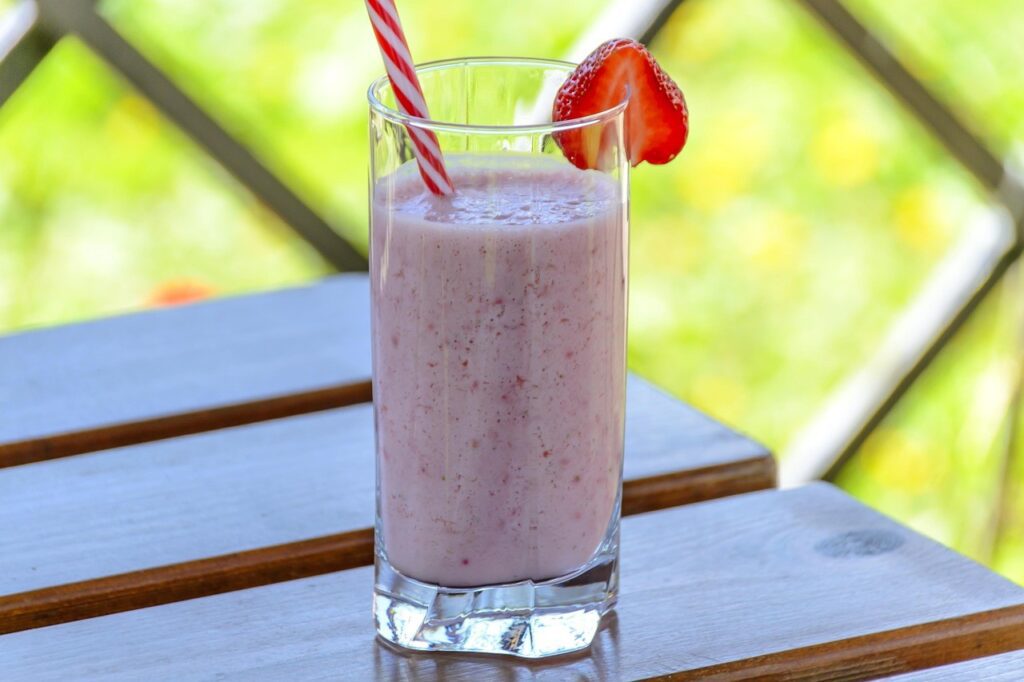
Increase your chromium and magnesium intake: When talking about minerals, chromium and magnesium are crucially needed for better blood glucose management as their deficiency has been linked with high blood glucose levels. Some chromium-rich foods are barley, apples, green beans, turkey, chicken, beef, and almonds.
And some magnesium-rich foods are dark leafy green vegetables, tuna, dark chocolate, whole grains, pumpkin seeds, avocados, beans, and squash.
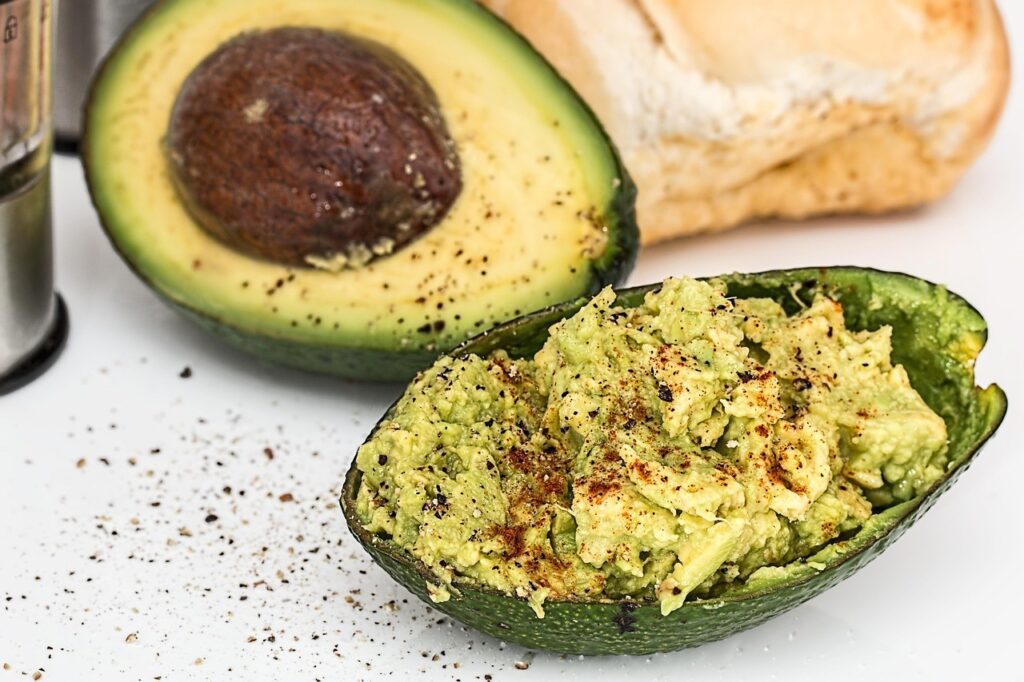
Eat at regular intervals: Eating small meals and healthy snacks throughout the day can prevent high and low blood glucose levels. This improves your insulin sensitivity and manages your blood sugar levels.
- Eat mindfully: How much you eat holds a significant importance for managing your blood glucose levels. Whatever you are eating, keep the portion size in mind and eat moderate amounts. This will not only help to manage your weight but also keep the blood sugar levels in check.

Few ways to eat mindfully are eating slowly, chewing better, using smaller plates, keeping serving size in mind, reading food labels, keeping food journal, or using an app for food-tracking.
- Stay hydrated: Yes, a well-hydrated body helps in managing your blood glucose levels in normal range. It lets the kidneys do their work at their best and remove excess sugar. A research study found that those who took more water were at lower risk for developing pre diabetes. Remember to stay hydrated with water and healthy drinks, not packaged juices and carbonated drinks.

Apart from all this, healthy fats and proteins are also good for managing your blood glucose levels. To cut long story short, you should focus on overall quality of your diet and have healthy balanced diet, rather than just adding or eliminating some particular food groups.

2. Move Your Body Regularly
Staying physically active and doing exercise is part of a healthy lifestyle and holds several benefits for improving your health and wellness. It helps in managing your weight, and increasing insulin sensitivity which ultimately supports in managing the blood glucose levels.
Research has found that if overweight or obese people reduce even 5% of their body weight, they would see improvement in their blood sugar regulation.
Exercise also let your muscles use blood glucose for contracting and energy needs. If you check your blood glucose levels before and after exercise, you will see a notable difference.
Don’t think that you need to join gym to achieve this goal or you must have to do long training sessions, rather go for shorter regular sessions and you will get positive results.

You should aim for 150 minutes of exercise weekly and for that you can do small 10-minute sessions throughout the week or plan as you feel comfortable.
An important point here is that although you need to do 150 minutes of exercise every week, you must also aim for moving your body for 30 seconds to one minute every 30 minutes as prolonged sitting is extremely harmful for your health.
Some exercises you can do are walking, squats, leg raises, running, weight lifting, jumping jacks, hiking, biking, and swimming.
3. Reduce Your Stress Levels
Stress is detrimental for your health in multiple aspects. One important for us here is disturbing the blood glucose levels. Yes, stress has a profound impact on your blood glucose levels and it is common for diabetic people that if they become stressed, their blood sugar level rises.
Basically, when you are stressed, your body releases cortisol and glucagon and these hormones are responsible for rising your blood glucose levels.
So you need to manage your stress levels as only a relaxed mind can give you a healthy body and vice versa.

To manage your stress, you need to search for activities which you enjoy and helps you unwind. You can do meditation, yoga, mindfulness techniques, exercises, deep breathing, arts and crafts, psychotherapy, swimming, and journaling. Some people enjoy gardening or hanging out with friends, other may feel better with book ready. So you have to see what is your stress therapy.
Studies have found that stress busting activities can even help with resolving insulin problems in people with chronic diabetes.
4. Improve Your Sleep Quality and Quantity
When you have poor sleeping habits and are not giving proper rest to your body, you are prone to having disturbances with your weight, appetite, insulin sensitivity and blood glucose levels. Sleep is also strongly linked with your mental health as poor sleep quality can increase the level of your stress hormone ‘cortisol’ rising your stress levels and blood glucose levels.
You must get 7-8 hours of good quality sleep each night.

For improving your sleep quality, you must limit your screen time, avoid alcohol or caffeine few hours before sleep, stay physically active, sleep less during day, use calming scents and pillows, make a consistent sleep routine, avoid working in your bedtime, make the room temperature comfortable, and if needed go for meditation.
5. Keep a Check on Your Blood Glucose Levels Regularly
Regularly monitoring your blood glucose levels helps in better tracking of your health status and leads to better management of your blood glucose levels. Nowadays easy to use portable glucometers are available which you can keep at your home and check your glucose levels routinely. However better is to consult your doctor for approval and knowing that how frequently you need to check your glucose levels.
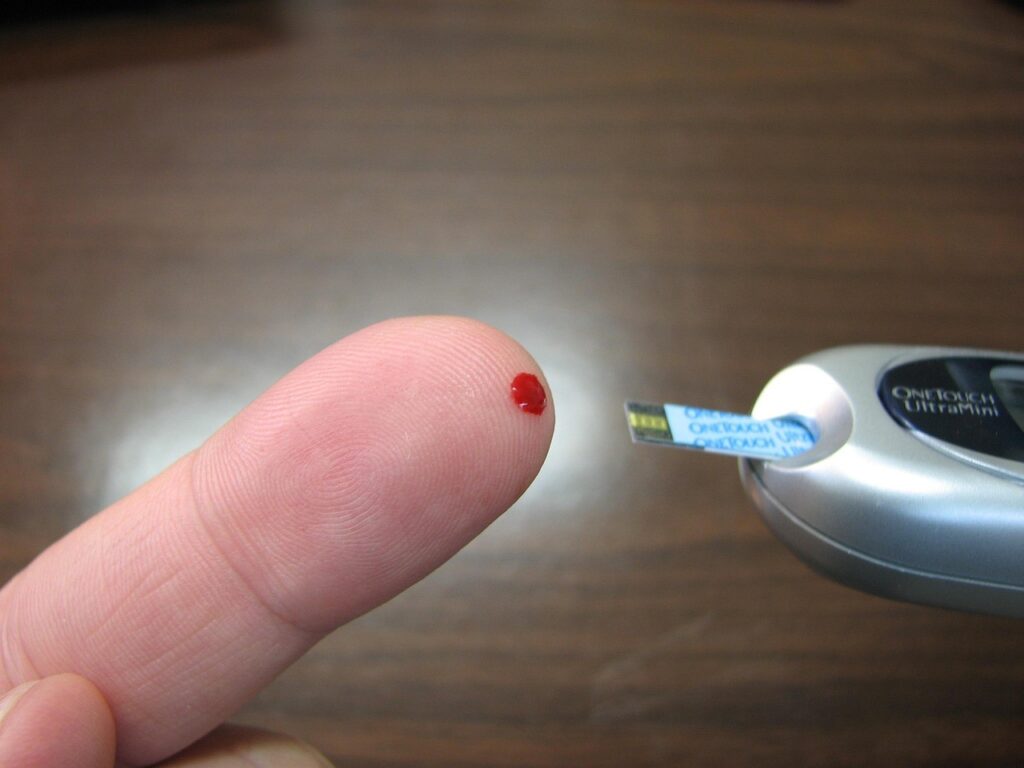
You will learn how your body responds to exercise and different foods. In this way, you are in better position to make the required dietary and lifestyle modifications.
The Takeaway
Diabetes is a serious health condition that affects a huge percentage of the world population. Whatever age you are at, maintaining normal blood sugar levels is always important for having a healthy life.
Fortunately, there are easy ways to mange blood glucose levels naturally. Some of them are making healthy dietary modifications, staying physically active, managing your weight, sleeping well, reducing your stress, and keep a regular check on your blood glucose levels.
References
Aguirre, F., Brown, A., Cho, N. H., Dahlquist, G., Dodd, S., Dunning, T., Hirst, M., Hwang, C., Magliano, D., Patterson, C., Scott, C., Shaw, J., Soltesz, G., Usher-Smith, J., & Whiting, D. (2013). IDF Diabetes Atlas: Sixth edition. (Sixth ed.) International Diabetes Federation.
Shukla R, Gupta M, Agarwal N, Bajpai A. Mindfulness Meditation as Adjunctive Therapy to Improve the Glycemic Care and Quality of Life in Patients with Type 1 Diabetes. Med Sci (Basel). 2021 May 21;9(2):33. doi: 10.3390/medsci9020033. PMID: 34064218; PMCID: PMC8162570.
Raveendran AV, Deshpandae A, Joshi SR. Therapeutic Role of Yoga in Type 2 Diabetes. Endocrinol Metab (Seoul). 2018 Sep;33(3):307-317. doi: 10.3803/EnM.2018.33.3.307. Epub 2018 Aug 14. PMID: 30112866; PMCID: PMC6145966.
Vega-López S, Venn BJ, Slavin JL. Relevance of the Glycemic Index and Glycemic Load for Body Weight, Diabetes, and Cardiovascular Disease. Nutrients. 2018 Sep 22;10(10):1361. doi: 10.3390/nu10101361. PMID: 30249012; PMCID: PMC6213615.
Meng Y, Li S, Khan J, Dai Z, Li C, Hu X, Shen Q, Xue Y. Sugar- and Artificially Sweetened Beverages Consumption Linked to Type 2 Diabetes, Cardiovascular Diseases, and All-Cause Mortality: A Systematic Review and Dose-Response Meta-Analysis of Prospective Cohort Studies. Nutrients. 2021 Jul 30;13(8):2636. doi: 10.3390/nu13082636. PMID: 34444794; PMCID: PMC8402166.
Janbozorgi N, Allipour R, Djafarian K, Shab-Bidar S, Badeli M, Safabakhsh M. Water intake and risk of type 2 diabetes: A systematic review and meta-analysis of observational studies. Diabetes Metab Syndr. 2021 Jul-Aug;15(4):102156. doi: 10.1016/j.dsx.2021.05.029. Epub 2021 May 29. PMID: 34186361.
Basu, A., Alman, A.C. & Snell-Bergeon, J.K. Dietary fiber intake and glycemic control: coronary artery calcification in type 1 diabetes (CACTI) study. Nutr J 18, 23 (2019). https://doi.org/10.1186/s12937-019-0449-z
Vlachos D, Malisova S, Lindberg FA, Karaniki G. Glycemic Index (GI) or Glycemic Load (GL) and Dietary Interventions for Optimizing Postprandial Hyperglycemia in Patients with T2 Diabetes: A Review. Nutrients. 2020 May 27;12(6):1561. doi: 10.3390/nu12061561. PMID: 32471238; PMCID: PMC7352659.
Kelly T, Unwin D, Finucane F. Low-Carbohydrate Diets in the Management of Obesity and Type 2 Diabetes: A Review from Clinicians Using the Approach in Practice. Int J Environ Res Public Health. 2020 Apr 8;17(7):2557. doi: 10.3390/ijerph17072557. PMID: 32276484; PMCID: PMC7177487.
Ewers B, Bruun JM, Vilsbøll T. Effects of basic carbohydrate counting versus standard outpatient nutritional education (The BCC Study): study protocol for a randomised, parallel open-label, intervention study focusing on HbA1c and glucose variability in patients with type 2 diabetes. BMJ Open. 2019 Nov 21;9(11):e032893. doi: 10.1136/bmjopen-2019-032893. PMID: 31753900; PMCID: PMC6886913.
Dempsey PC, Larsen RN, Sethi P, Sacre JW, Straznicky NE, Cohen ND, Cerin E, Lambert GW, Owen N, Kingwell BA, Dunstan DW. Benefits for Type 2 Diabetes of Interrupting Prolonged Sitting With Brief Bouts of Light Walking or Simple Resistance Activities. Diabetes Care. 2016 Jun;39(6):964-72. doi: 10.2337/dc15-2336. Epub 2016 Apr 13. PMID: 27208318.
Richter EA, Sylow L, Hargreaves M. Interactions between insulin and exercise. Biochem J. 2021 Nov 12;478(21):3827-3846. doi: 10.1042/BCJ20210185. PMID: 34751700.
Qingqing Zhang, Yucheng Wu, Xiaoqiang Fei, Effect of probiotics on glucose metabolism in patients with type 2 diabetes mellitus: A meta-analysis of randomized controlled trials, Medicina, Volume 52, Issue 1, 2016, Pages 28-34,ISSN 1010-660X,https://doi.org/10.1016/j.medici.2015.11.008.
Li C, D’Agostino RB Jr, Dabelea D, Liese AD, Mayer-Davis EJ, Pate R, Merchant AT. Longitudinal association between eating frequency and hemoglobin A1c and serum lipids in diabetes in the SEARCH for Diabetes in Youth study. Pediatr Diabetes. 2018 Apr 30:10.1111/pedi.12690. doi: 10.1111/pedi.12690. Epub ahead of print. PMID: 29708292; PMCID: PMC6207475.
Wang X, Hu Y, Qin LQ, Dong JY. Meal frequency and incidence of type 2 diabetes: a prospective study. Br J Nutr. 2022 Jul 28;128(2):273-278. doi: 10.1017/S0007114521003226. Epub 2021 Aug 23. PMID: 34420544; PMCID: PMC9301526.
Aras M, Tchang BG, Pape J. Obesity and Diabetes. Nurs Clin North Am. 2021 Dec;56(4):527-541. doi: 10.1016/j.cnur.2021.07.008. PMID: 34749892.
Mehri A. Trace Elements in Human Nutrition (II) – An Update. Int J Prev Med. 2020 Jan 3;11:2. doi: 10.4103/ijpvm.IJPVM_48_19. PMID: 32042399; PMCID: PMC6993532.
Nollet M, Wisden W, Franks NP. Sleep deprivation and stress: a reciprocal relationship. Interface Focus. 2020 Jun 6;10(3):20190092. doi: 10.1098/rsfs.2019.0092. Epub 2020 Apr 17. PMID: 32382403; PMCID: PMC7202382.
Reutrakul S, Van Cauter E. Sleep influences on obesity, insulin resistance, and risk of type 2 diabetes. Metabolism. 2018 Jul;84:56-66. doi: 10.1016/j.metabol.2018.02.010. Epub 2018 Mar 3. PMID: 29510179.
Azhar A, Gillani SW, Mohiuddin G, Majeed RA. A systematic review on clinical implication of continuous glucose monitoring in diabetes management. J Pharm Bioallied Sci. 2020 Apr-Jun;12(2):102-111. doi: 10.4103/jpbs.JPBS_7_20. Epub 2020 Apr 10. PMID: 32742108; PMCID: PMC7373113.


